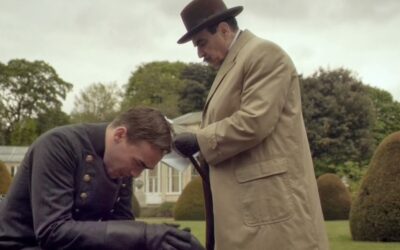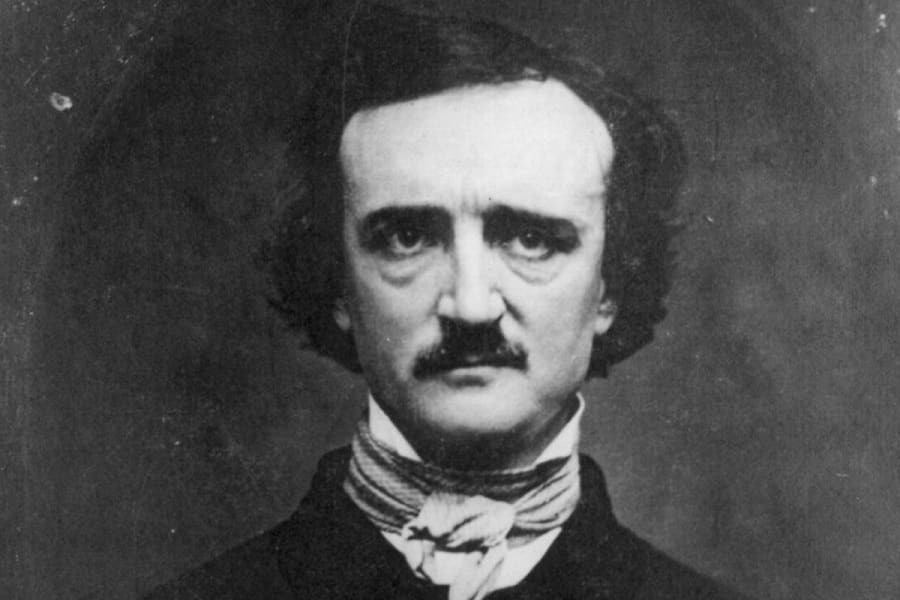
Feature
Edgar Allan Poe
Randle Crews
Edgar Allan Poe influenced me as a writer and generations of other authors like H.P. Lovecraft and Stephen King.
Unfortunately, the casual reader may only be familiar with some of his more famous works like The Raven, The Tell-Tale Heart, and maybe The Pit and the Pendulum. Certainly, readers are familiar with dark romanticism, his preferred writing genre, but very few know he initiated the modern detective fiction story.
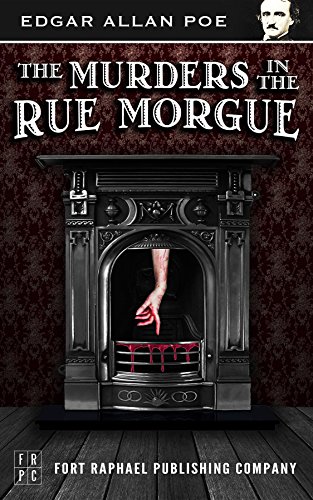
The Murders in the Rue Morgue (1841)
The Murders in the Rue Morgue is Poe’s first detective story in the trilogy. Here we are also introduced to his protagonist, the Frenchman Chevalier C. Auguste Dupin. Dupin is not a professional detective per se. However, he would become the paradigm on which many other fictional detectives, including Arthur Conan Doyle’s Sherlock Holmes and Agatha Christie’s Hercule Poirot, would be based. Dupin lives in an affluent section of Paris with his anonymous friend, who also narrates the three short stories in the series.
When Dupin learns of the violent murder of two women, Mrs. L’Espanaye, and her daughter, in the vicinity, he soon becomes intrigued enough to get involved with the investigation. Auguste Dupin employs ratiocination to solve cases, a combination of deductive, inductive, and abductive reasoning. His friend referred to it as a special reasoning power that he possessed. This type of brilliant logic serves him well during his investigations. The police are clueless about who or what murdered the women, and Dupin uses his extraordinary skills to solve the homicide.
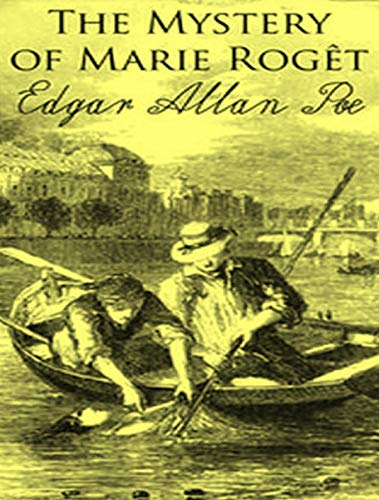
The Mystery of Marie Rogêt (1842)
The Mystery of Marie Rogêt is the second short story of the ratiocination trilogy. Incidentally, the plot for this short story was based on the murder of a woman in New Jersey several years prior. In Poe’s version, the woman’s body is discovered on the Seine, rather than the Hudson. When the police are unable to find a solution to the crime, they enlist Dupin’s help. Once again, an innocent person is falsely accused, and only the brilliant Auguste Dupin can crack the case. Or can he? In this particular tale, there is never any genuine resolution.
We only get Dupin’s hypothesis about what may have occurred. Granted, this may disappoint some readers hoping for a climactic “who-dunnit” type ending. Poe had already published two of the three parts of the story before the actual murder was solved. Since the third part was never published, we do not know if Poe’s hypothesis, which was revealed in part three, to the real murder was correct. It is for this reason that The Mystery of Marie Rogêt is considered to be Poe’s least successful of the trilogy.
advertisement
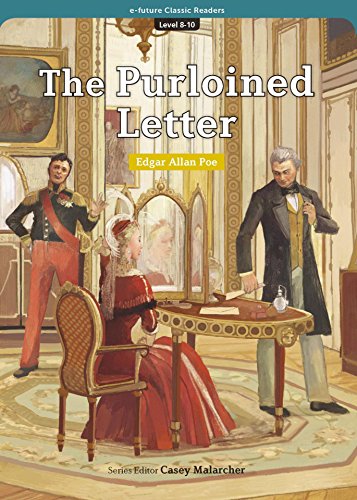
The Purloined Letter (1844)
The Purloined Letter is the final Poe ratiocination story. It would be the last time that Dupin and his anonymous narrator friend team up to solve a mystery. A letter from the queen’s lover has been stolen from her private sitting room in an attempt to blackmail the queen. The police’s efforts to recover the letter are in vain. Even a reward of 50,000 francs brings no new leads. Dupin explains that the police have underestimated their prime suspect, the notorious Minister D—. Unfortunately for D—, the astounding Auguste Dupin does not under-estimate him and beats Minister D— at his own game.
The Purloined Letter is the only Dupin story that does not involve a homicide. It is also the only story where money becomes the main motivational factor for our favorite investigator. Dupin also appears to relish matching wits with the antagonist of the story. It is worth mentioning that Dupin cracks the case by identifying with the suspect which is a technique he utilizes in his previous two stories. Poe stated that he considered The Purloined Letter perhaps his best ratiocination tale. It may be difficult to argue. Unfortunately, there would never be another Dupin mystery to solve. However, lovers of the modern detective story owe it all to Poe.
I sincerely hope that this article has piqued your interest in the works of Edgar Allen Poe. At first, you may find the road to be a little bumpy. But if you can persevere through the beginning, you will only find smooth sailing ahead. So, what are you waiting for? Go and delve into this fantastic literature. You will not regret it.
About the Author
Author Randle Crews lives and grew up in the city of Colorado Springs, Colorado. Some of his favorite authors include Roger Zelazny and Neil Peart. His two greatest influences are H.P. Lovecraft and Edgar Allan Poe. When he’s not pursuing his love of writing, he enjoys hiking in the beautiful wilderness of Colorado.
The Secret Order of the Orchid by Randle Crews (goodreads.com)

More Detective Features
The Characteristics of Hercule Poirot
Peculiar habits and unmatched deductive abilities
Detective Novels
The pinnacle of sleuthing
The Best of Sherlock Holmes
Four Sherlock Holmes Mysteries You Need to Read
Advertisement

